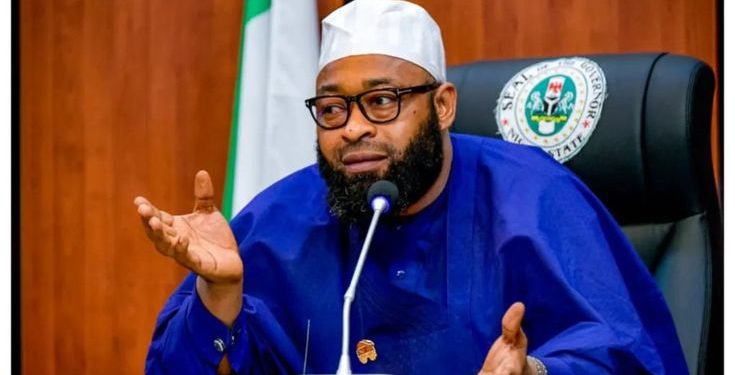The government of Saudi Arabia has officially approved a 100 million dollar livestock offtake deal with Nigeria, marking a major breakthrough for the country’s agricultural export sector. Governor Mohammed Umaru Bago of Niger State made the announcement during the FirstBank Agric and Export Expo 2025 in Lagos, stressing that the agreement will unlock new economic opportunities and position Nigeria as a leading livestock supplier to the Middle East.
Governor Bago explained that the agreement was facilitated through the Saudi Export and Import Bank in partnership with the Nigerian Export and Import Bank (NEXIM). The arrangement will begin with an initial 10 million dollar tranche before scaling up to the full 100 million dollar value. He emphasized that the project is designed not only to export livestock but to transform Nigeria’s meat industry into a globally competitive sector by covering the entire value chain, from production to processing and logistics.
Massive Market Potential
According to Governor Bago, the Middle East represents a livestock and animal by-products market valued at about 2.5 billion dollars annually. Saudi Arabia and its neighboring countries depend heavily on imported meat to meet their growing population demand. Nigeria, with its vast grazing lands and large cattle population, is strategically positioned to take advantage of this gap.
He noted that the initiative is not restricted to meat alone. It will also involve the export of animal by-products such as hides, hooves, horns, tripe and blood, ensuring that every part of the livestock contributes to economic value. By focusing on the full value chain, Nigeria aims to maximize profit, reduce waste, and create more jobs in the agricultural sector.
Collaboration with Lagos State
Governor Bago also revealed a strategic collaboration with Lagos State. Lagos has committed to a five billion naira livestock offtake as part of a broader five hundred billion naira food supply framework. Niger State, which is one of Nigeria’s agricultural powerhouses, has pledged 100,000 hectares of farmland to Lagos under what is known as the Lagos Farm initiative.
This farmland will serve as a major production hub for staple crops such as yam, rice and beans, alongside large-scale livestock production. The partnership underscores Nigeria’s effort to create inter-state agricultural cooperation that not only feeds domestic markets but also meets international demand.
Modernizing Agricultural Logistics
One of the major challenges in Nigeria’s livestock industry has been logistics. Traditionally, live animals are transported in large numbers from the north to the south, resulting in stress to the animals, weight loss and high costs. Governor Bago confirmed that new logistics systems are being put in place to end this outdated practice.
With support from Lagos, LNG-powered cold chain trucks will be deployed to ensure that livestock is processed in Niger State before being transported as frozen and packaged meat. Processing facilities in Mokwa, Niger State, will play a key role in this transformation. Instead of moving live cattle across long distances, the meat will now be processed, branded, and shipped directly to consumers in Nigeria and to export destinations, especially in the Middle East.
This innovation is expected to reduce transportation losses, improve hygiene, extend shelf life, and enhance the competitiveness of Nigerian meat products in global markets.
Lagos State Praises Non-Oil Export Growth
Speaking at the Expo, Lagos State Governor Babajide Sanwo-Olu praised the federal government’s renewed focus on non-oil exports. He pointed out that Nigeria has consistently recorded quarter-on-quarter growth in non-oil exports, which is a positive indicator of economic diversification.
Sanwo-Olu noted that Lagos remains Nigeria’s major logistics hub, handling most of the country’s import and export activities. He stressed that to fully take advantage of deals like the Saudi livestock agreement, Nigeria must accelerate the modernization of its ports, improve digital trade systems, and strengthen cold chain infrastructure. According to him, such improvements will reduce turnaround times, lower logistics costs, and boost Nigeria’s global competitiveness.
The Role of Financial Institutions
Olusegun Alebiosu, the Chief Executive Officer of FirstBank, also addressed the gathering. He emphasized the importance of agricultural transformation and urged Nigerian financial institutions to provide farmers and agribusinesses with affordable credit facilities.
Alebiosu warned that high interest rates have been one of the greatest obstacles facing farmers, making it difficult for them to expand production or invest in modern technology. He stressed that for Nigeria to truly benefit from the Saudi deal and similar export opportunities, financial institutions must bridge the funding gap in agriculture.
He added that value addition is crucial. By processing livestock into finished products such as frozen beef, packaged meat cuts, leather goods and other derivatives, Nigeria can dictate international prices rather than being subjected to the volatility of raw commodity markets.
Boost to Food Security and Employment
Beyond export earnings, the Saudi livestock deal is also expected to contribute to Nigeria’s food security and job creation. With the establishment of large farms, modern abattoirs and cold chain systems, thousands of jobs will be created across the livestock value chain from herders and processors to logistics operators and exporters.
Governor Bago concluded that the deal represents more than a trade agreement. It is a step toward restructuring Nigeria’s agricultural economy, reducing dependence on oil, empowering rural communities and positioning the country as a reliable supplier in global food chains.
























































